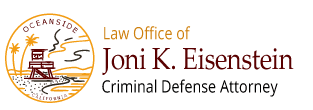Not long ago, you could barely turn on the television without seeing a protest live on air. The social unrest of last year sparked frustration and outrage across the nation and among many California citizens. Instead of sitting by quietly, they decided to make their disapproval known by joining demonstrations and protests throughout the state.
Under the First Amendment of our Constitution, all U.S. citizens have the right to free speech and peaceful assembly. However, we saw many protesters injured or arrested by the police. What was the basis of these arrests? Were they constitutional? What should protesters know before hitting the streets?
If you intend to join a protest or other demonstration, it is critical that you know the law and understand your rights. Protest laws in California are very specific about what is and is not legal. Read on to learn more about California protest laws and how you can protect yourself.
Schedule your free consultation today. Contact Criminal Defense Lawyer Joni Eisenstein.
Protest Laws in California
The First Amendment states:
“Congress shall make no law respecting an establishment of religion, or prohibiting the free exercise thereof; or abridging the freedom of speech, or of the press; or the right of the people peaceably to assemble, and to petition the Government for a redress of grievances.”
In general, the constitutional right to peaceably assemble applies to public areas such as sidewalks, streets, parks or in front of government buildings. It does not apply to private property unless protestors have received special permission to do so. In some areas, special event permits are required, especially when the assembly will impede on public use of the streets or property.
Protestors must be aware that the police have a duty to protect and serve. They have a responsibility to maintain order; however, most protests do not require a permit or require restriction if they do not “realistically present serious traffic, safety, and competing-use concerns beyond those presented on a daily basis by ordinary use of the streets and sidewalks.”
What is Unlawful Assembly?
Under California Penal Code 408 PC, unlawful assembly is defined as “whenever two or more persons assemble together to do an unlawful act, or do a lawful act in a violent, boisterous, or tumultuous manner, such assembly is an unlawful assembly.” An unlawful assembly violation is considered a misdemeanor offense that is punishable by up to 6 months in jail and a fine of up to $1000.
If you are attending a protest or demonstration, be sure to understand what is included under this law. Some examples of actions that could violate this statute include:
- Throwing objects
- Lighting vehicles on fire
- Endangering public safety
- Vandalizing police vehicles or property
What Are Your Rights
As an American citizen who wishes to participate in a protest or demonstration, you have rights under the First Amendment. Before you go, know your rights:
- You are generally protected while protesting in public forums as long as you are not blocking normal traffic or preventing the public from accessing public property.
- Owners of private property make their own rules about protesting on their premises. Be sure you have obtained permission to protest on private property if you are not the owner.
- Just like you have the right to have your voice heard, so do those on the other side of the aisle. Counterprotesters have the right to use the same public space.
- In a public space, you have the right to photograph or video anything that is in your view. Police must have a warrant to view or confiscate photos or videos.
- Public marches in the streets do not generally require a permit as long as they do not impede upon the public’s use of the roadways.
Do you believe your rights were violated while participating in a legal protest, demonstration or march? Follow these tips to ensure that you are protecting yourself:
- Record as much information as possible by writing it down, taking a video or photographs
- Note all information related to the law enforcement agency arresting you and identifiers of the officer
- Gather contact information from any witnesses
- Document any injuries or property damage
- File an official complaint
- Hire a defense attorney to represent your best interests
Call the Law Office of Joni Eisenstein
Citizens arrested under this statute can explore a number of defenses under the counsel of an experienced criminal defense attorney. Your attorney may be able to argue that your First Amendment rights were violated, that you were not aware that the assembly was unlawful or that you were not a willful participant.
If you were arrested during a protest or demonstration, consult with experienced criminal defense attorney Joni Eisenstein. With years of experience working in the San Diego criminal courts, she understands California protest laws and knows the strongest defenses that can be effective at getting your charges dropped.
Joni Eisenstein feels strongly that you have the right to voice your opinions, frustrations and concerns in a public forum without intervention by law enforcement. Call our office today to speak with our skilled attorney to review the facts of your case and identify your best defense.
The Law Office of Joni Eisenstein Unlawful Assembly Defense Attorney – call the office at 760-721-3161 today.
If you are on the fence about hiring a defense attorney, stop thinking about it, and do it now
Hiring a criminal defense attorney like Joni Eisenstein can help you go from a place of uncertainty to freedom.
